Welcome to the last episode of The Voyages and Travels of the Ambassadors, the epic story of a 17th century trade expedition from Germany to Persia that failed so completely its leader was publicly executed upon his return. This is Episode 31: Home, and Execution.
Our ambassadors arrive in the Russian city of Astrakhan on June 15, 1638, and stay until September 7. As I noted in the last episode, one can feel the narrative winding down to its conclusion here in Book 7. Having been in Astrakhan for a month in the fall of 1636, Olearius gives us no further information about the city, focusing instead on the key events that affect the mission.
Upon arriving in the city, Ambassador Bruggeman seizes the luggage on the pretense of searching for contraband. That doesn’t go over very well, and he is shunned by almost everyone for the remainder of the journey. Bruggeman becomes even more irritable than usual, and even threatens to stab our narrator at the dinner table.
Olearius writes: “One day he gave such bitter expressions, to the Secretary of the Embassy, that he could not forbear making him some answer, whereat the other was so enrag’d, that he drew his knife at him, and made him rise from the Table, with such injurious words, that the Secretary, at his return into Holstein, was oblig’d to make his complaints thereof, to the Magistrate, who condemn’d Bruggeman to make publick satisfaction.”
Bruggeman, we are told, has a guilty conscience for his “many imprudent actions” during the journey. He also fears being punished by Duke Frederick upon returning to Holstein, a fear which causes him to make even more bad decisions.
He tells the Muscovian Ambassador of his intention to leave the company in Astrakhan, and return to Holstein with a chosen few, his ambition being to pacify the Duke’s anger about the failed mission.
The Muscovian Ambassador warns Olearius of Bruggeman’s designs, and then leaves for Moscow. He never arrives, and we are told that he poisons himself after learning he had fallen out of favor with Tsar Mikhail I.
On July 25, a caravan from Moscow arrives in Astrakhan. One of the travelers is a German named Andrew Resner, who has letters of recommendation from Duke Frederick of Holstein to Shah Safi of Persia.
After a number of private conversations with Bruggeman, Resner cancels his journey to Persia and makes plans to return to Holstein to plead Bruggeman’s case with the Duke. He leaves on September 5, taking some 200 persons overland to Moscow. Some of Bruggeman’s people go with him and take the horses.
Those who stay also start getting ready to leave. For 600 crowns they purchase two 60-foot boats. They pay 30 sailors 12 crowns each to take them up the Volga River to Casan. And Bruggeman buys two young girls, one for 25 crowns and the other for 16, from some Russian musketeers.
The Cossacks had stolen the 10-year-old girl from a Tartar schoolmaster in Precops – a city near the slave market of Caffa on the Crimean Peninsula – and brought her some 400 miles to Astrakhan.
The seven-year-old girl was kidnapped not far from Astrakhan as she lay in bed with her mother. Her parents had marked both her cheeks with small circles of blue dye, to identify her in case she were ever stolen. Olearius tells us the Cossacks had her in a bag, and dumped her – stark naked – onto the floor at the Ambassadors’ feet, as if she were a pig being sold at market.
Upon returning to Holstein, Bruggeman presents both girls to the Duchess, who raises them and has them baptized in the year 1642.
The Turkish language interpreter for the mission is also a Tartar who had been stolen as an infant and carried to Moscow, where he had been baptized. He eventually met his family again, and they would have taken him back except that he refused to go. God brought him to the knowledge of Christ, he says, and he prefers to die a Christian.
The Persian ambassador to Muscovy arrives in Astrakhan on September 6, and buys himself a wife. She also is a Tartar, and she is sister to a minor lord who is a prisoner of the Russians. He sells her to the ambassador for 120 crowns and a horse. Olearius tells us that the ambassador is at least 70 years of age, but very vigorous, and eats quite a lot of baked hemp seed because it “revives Nature, yet hinders Conception.”
The Germans leave Astrakhan on September 7, after being informed by some local rogue Cossacks that they have successfully robbed so many people on the river that they are eager to see if they can also rob the Germans.
They don’t care that the Germans have artillery. They don’t even care that the Germans have some kind of “invention” that can toss them into the air. Olearius doesn’t tell us what that invention might be, so I can’t tell you. I can tell you that the worst thing the Cossacks fear is death by hanging or death on the torture wheel, but the hope of a successful robbery makes them willing to risk anything.
Exactly two years earlier, on the way down the Volga, Olearius had seen a gallows on a high reddish hill. “We were told it was set up by the governor of the nearest city for the execution of Cossacks,” he wrote, and that the compatriots of the executed men allow their bodies to hang there for no more than six days.
The Cossacks had failed to rob the Germans in episode 6, and the worst that happens this time is that they succeed in stealing some horses.
Bruggeman has succeeded in dividing the Germans into two factions, each of which embarks on a different ship. They weigh anchor, and the Persian ambassador joins them the next day with three of his own ships.
By October 2 they have passed Tsaritsyn, which was named Stalingrad in 1925 and became Volgograd in 1961. As we heard in episode 6, it was founded as a fortress in 1589 to protect Russian territory along the Volga, and is only 30 miles or so from the River Don to the west, and thus is close to territory once ruled by the Don Cossacks.
One of the Persian boats goes aground, and it takes so long to refloat it that all the ambassadors join one another for dinner on the riverbank. They become so drunk that they have to be dragged back to the boats like beasts. The Persians start a fight with the Russians, and Ambassador Bruggeman tries to intervene and stab someone.
Olearius does not tell us who, but someone prevents the fight from escalating into a deadly brawl.
Unfortunately, a page to one of the Persian ambassadors, who was sick with the bloody flux, falls into the river and is not missed until the next morning.
The small fleet arrives in Saratov on October 6, where they hear that a party of Cossacks had intended a raid but settles for stealing some Persian breeding stallions.
A storm on October 14 scatters all the ships and forces three aground. The Germans barely manage to save their baggage, and the Persians save all their horses but one. The storm continues for two days, after which the Germans make repairs and continue upriver. The Persians lose two boats, and send their horses overland to Moscow.
The Volga is beginning to freeze, and the three ships barely make Casan on November 6. The river is impassable the next morning, and the mayor of the city – who has a decidedly unfriendly view of the German trade mission – prohibits them from coming ashore.
The Persian ambassador arrives on November 11 and convinces the mayor to allow the Germans to disembark. After spending a freezing week on the river, they take up warmer quarters in the suburbs on November 13.
The mayor gives orders that no citizen of the town may entertain the Germans, but he changes his tune a week later when they give him their two ships. As Olearius writes, this “made him very much our friend.”
The town celebrates the Festival of St. Nicholas for eight days in December, and Olearius witnesses “nothing but perpetual drunkenness, and extraordinary debauchedness, in both men and women.”
Olearius is staying in the home of a local woman whose husband is in prison for unpaid debts. The parson comes for a visit one day to comfort her and tells Olearius a story. About 40 years earlier, the bodies of two monks – Warsinosi and Kursi – were discovered in the city’s monastery. They had died many years before that, but their bodies were found whole, and any sick person who did their devotions at the tomb immediately recovered their health.
“I ask’d him why he complain’d of his back, and how it came to pass there were so many blind people, and so great a number of other sick persons at Casan,” Olearius writes. “The Priest had not a word to say, but grew angry, and went his way.”
They stay in Casan for five weeks and leave on December 13, after the ice and snow is able to bear their weight. The Germans and the Persians require 60 horse-drawn sleds, which take them up the frozen river some 250 miles to Nizhny Novgorod.
The pastor of the local Lutheran Church had died six months before, so Bruggeman’s minister preaches on the Sunday before Christmas. The townspeople like this so much that they want the Germans to stay until after Christmas and preach some more, but Ambassador Bruggeman is against it and orders a departure on December 23. They leave the Volga and take the frozen River Occa toward Moscow.
On December 31, they arrive in the village of Rubossa, within 25 miles of Moscow, and for some unnamed reason Bruggeman gets so upset that he threatens to cut off the noses and ears of his servants when they cross the border into Germany. He has threatened violence on his own people before, but this time no one cares.
They reach Moscow on January 2, 1639, staying at the ordinary house appointed for the reception of ambassadors. The reception does not equal the royal treatment they received the last time, but they are given everything they need from the Tsar’s kitchen and cellar.
Bruggeman’s men, who had arrived overland from Astrakhan with the horses some time before, are waiting for them. But Andrew Resner had continued on to Holstein according to his agreement with Bruggeman.
Sir Gruneauld, a Senator of Danzig who has been traveling with them as a gentleman of the embassy, dies on February 2. He was a person of much worth, Olearius says, and had previously travelled into the East and West-Indies.
The Persian ambassador arrives on February 5 from Nizhny Novgorod and leaves for Germany on March 7. Tsar Mikhail meets several times with both the Germans and the Persians, but Olearius only reports that such meetings were held, not what was discussed.
The Germans leave Moscow on March 15 and travel hard to beat the spring thaw to Great Novgorod, which they reach on March 23. By the 27th they are out of Muscovy and in the Swedish city of Narva on the cost of the Baltic Sea.
The Persian ambassador is already there, staying at the home of a local senator. Crowds of local women show up daily, trying to get a glimpse of the wife he bought in Astrakhan. Deeply offended by this behavior, he almost leaves the city and sets up camp in an open field. He also asks if all the women of Narva are whores, since they do not cover themselves as women do in Persia. The experience causes him to hide his wife from the public during the rest of the trip to Holstein.
Much of the snow has melted by April 8, so they switch from sleds to wagons for the short trip to Reval – today the Estonian city of Tallinn – where the Senate receives them magnificently on April 13.
On their outbound journey through all these same cities, the ambassadors had been met with welcoming cannon fire. If they receive the same sort of welcome this time, Olearius does not mention it.
But he is obviously fed up with the journey, and even more fed up with the persecutions of Ambassador Bruggeman. Our long-suffering author immediately books passage on a ship to Lubeck and leaves on April 15.
After arriving in Holstein, he expects the rest of the mission to follow shortly. But they stay in Reval for three whole months only because Bruggeman fears the allegations that will most certainly be lodged against him with Duke Frederick.
Five men of the retinue use the opportunity to marry women of the finest families in Reval. Ambassador Crusius gets married, and Paul Fleming marries Anna Niehaus. He had previously been engaged to her sister, Elisabeth, but she had married someone else after Paul refused to cancel his journey to Persia.
The remaining members of the company finally leave Reval on July 11, reaching the coast of Holstein on the 22nd. Contrary winds force them to anchor off the city of Neustadt. When they hear that the city is suffering from an outbreak of the black plague, they sail across the bay to Travemunde on July 23. The ambassadors send their people and the baggage by sea, and travel overland to Eutin, to Kiel, and then to Duke Frederick’s home at Schloss Gottorp, where they finally finish the journey on August 1, 1639.
Olearius writes: “And so they concluded their Travels into MUSCOVY, TARTARY, and PERSIA. FINIS.”

The journey is over, but there are still a few loose ends to tie up. You probably noticed that Adam Olearius alludes to Otto Bruggeman’s fate but does not spell it out.
Olearius has been in Gottorp for three months. We know he files charges against Bruggeman with the local magistrate, and surely with the Duke himself.
Bruggeman has some time to put his affairs in order. He hands the Tatar girls over to the Duchess. He meets with Duke Frederick, probably along with Andrew Resner, to plead his case.
The historical record says a lengthy court trial is held, and that Bruggeman makes the best defense possible. I have been unable to find direct evidence about what the indictment contains, but sources say charges include exceeding his authority, cheating on invoices, deceiving his colleagues, committing fornication, and other crimes which probably include assault, attempted murder, and maybe even homicide.
In March 1640, Tsar Mikhail writes a letter to Duke Frederick, telling him of a secret agreement Bruggeman had made with Russian merchants behind the back of Ambassador Crusius.
Some sources say that Bruggeman, while in Isfahan, made a false offer to Shah Safi that Holstein would send troops to fight against the Ottoman Empire. As a result, an envoy of the Shah traveled to meet the Duke in Gottorp, which probably caused a diplomatic incident worthy of the death penalty all by itself.
In another incident after it was clear the trade mission would fail, Bruggeman secretly proposed to the Russians that they help Holstein seize control of Persian silk-producing regions.
The magistrate convicts Bruggeman and sentences him to death by hanging, but Duke Frederick has mercy and pardons him to the sword. He accepts his fate with composure, and is even grateful that Olearius has forgiven him. He is executed on May 5, 1640.
Olearius writes his epitaph with a short “tombstone poem” that was popular at the time. Here are the concluding lines:
“With such a mouth and brow I was known in town and country. My heart, however, was known only to God. Hamburg gave me my life. Spain endowed me with my spirit. Holstein offered me fulfillment. My own actions gave me death.”
The city of Friedrichstadt was founded by Dutch settlers in 1621 and named after Duke Frederick, whose home was a mere 20 miles away in Gottorp. This city was supposed to be the terminus of the new Silk Road from Persia to Germany, and Frederick had large warehouses built for the shipments of raw silk he expected to buy from Shah Safi.
But the largest shipment he ever received was brought by the Persian ambassador who accompanied Bruggeman from Astrakhan. It was enough to drape a few rooms in Gottorp Castle.
The ambassador was a cruel man, and when he returned to Persia six of his men defected and asked for asylum in Holstein. The ambassador’s own secretary, whose name was Hakwirdi, was among them, and he soon became a close friend and colleague of Olearius.
Hakwirdi converted to Christianity, took the name Friedrich Christian, and helped Olearius translate Persia’s single most influential work of prose – Gulistan, or The Rose Garden – into German.
Olearius declined an offer to work for Tsar Mikhail, and instead became librarian and keeper of Duke Frederick’s cabinet of curiosities, collecting manuscripts, books, and works of art that greatly enriched the House of Holstein-Gottorp. The collection eventually became one of the largest and most impressive in Europe.
As noted in episode 11, Olearius also directed the construction of the world-famous Globe of Gottorp, the 11-foot-diameter water-powered mechanical sphere made between 1651 and 1664 and given to Peter the Great of Russia in 1713 by Duke Frederick’s grandson, Christian Augustus.
Gottorp was destroyed during the Swedish-Danish War of 1658, and Duke Frederick died the following year. Olearius maintained a “cordial, but restrained relationship” with Frederick’s successor, Christian Albert.
Adam Olearius died on February 22, 1671, and is buried in a church in Schleswig that he built.
Now, after more than 115,000 words and some 15 hours of audio, we have finally reached the end of our own vicarious journey to Persia. I truly hope you enjoyed – as much as I have – the Voyages and Travels of the Ambassadors.
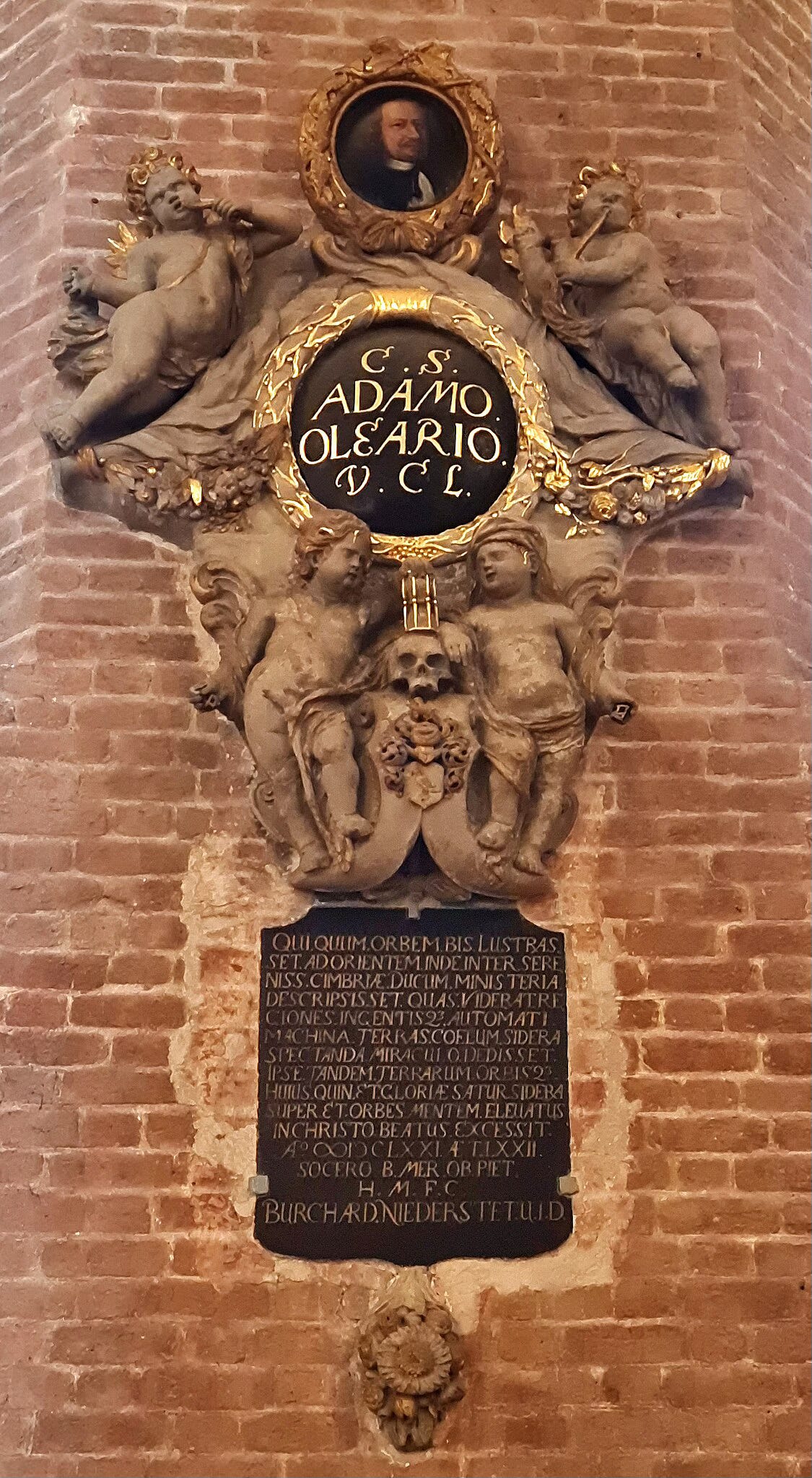

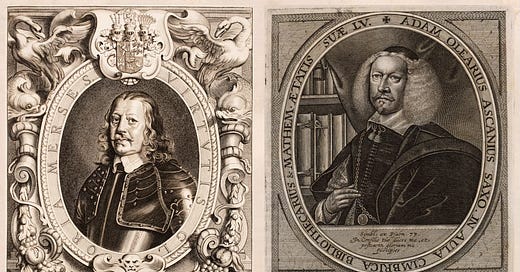




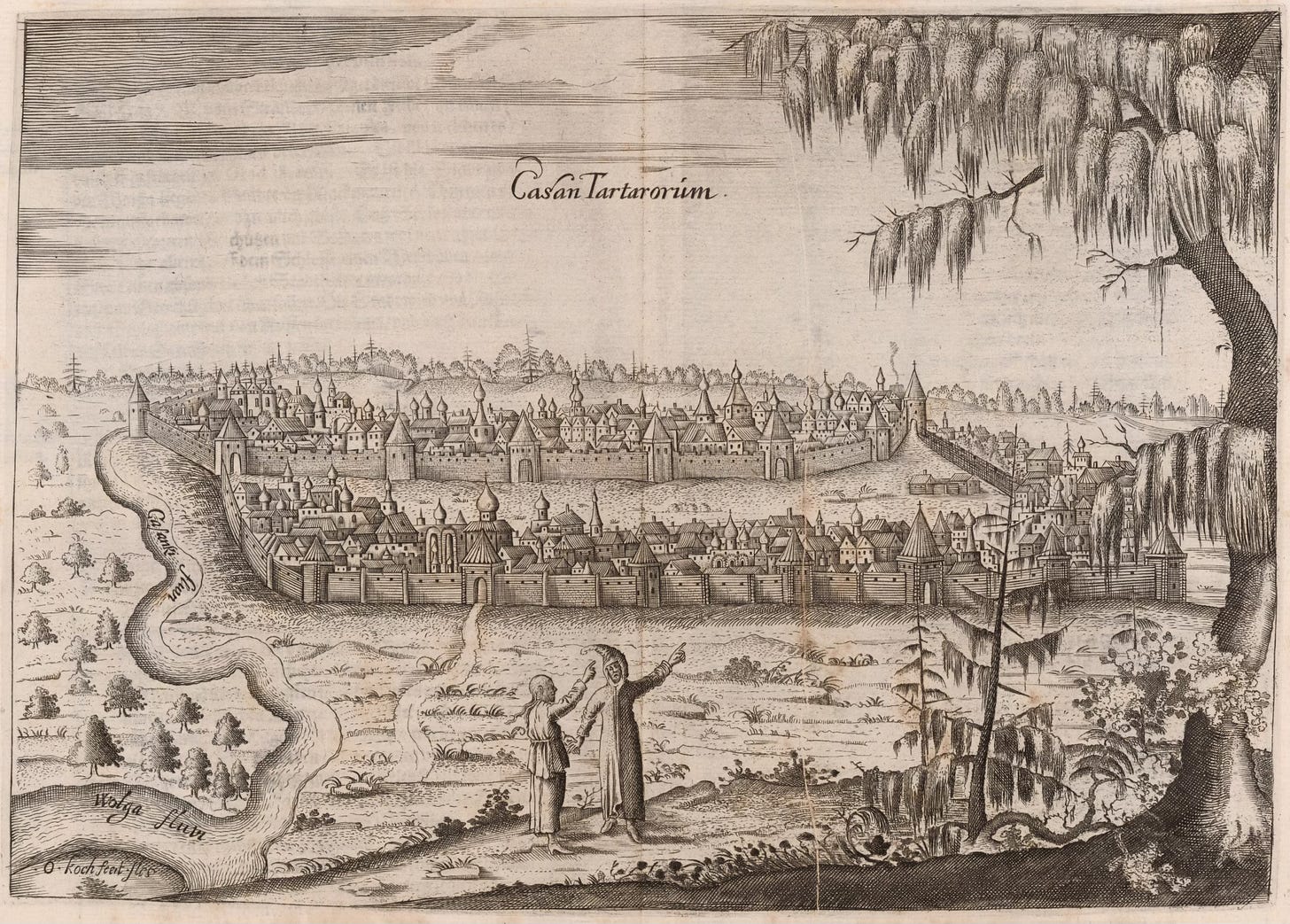
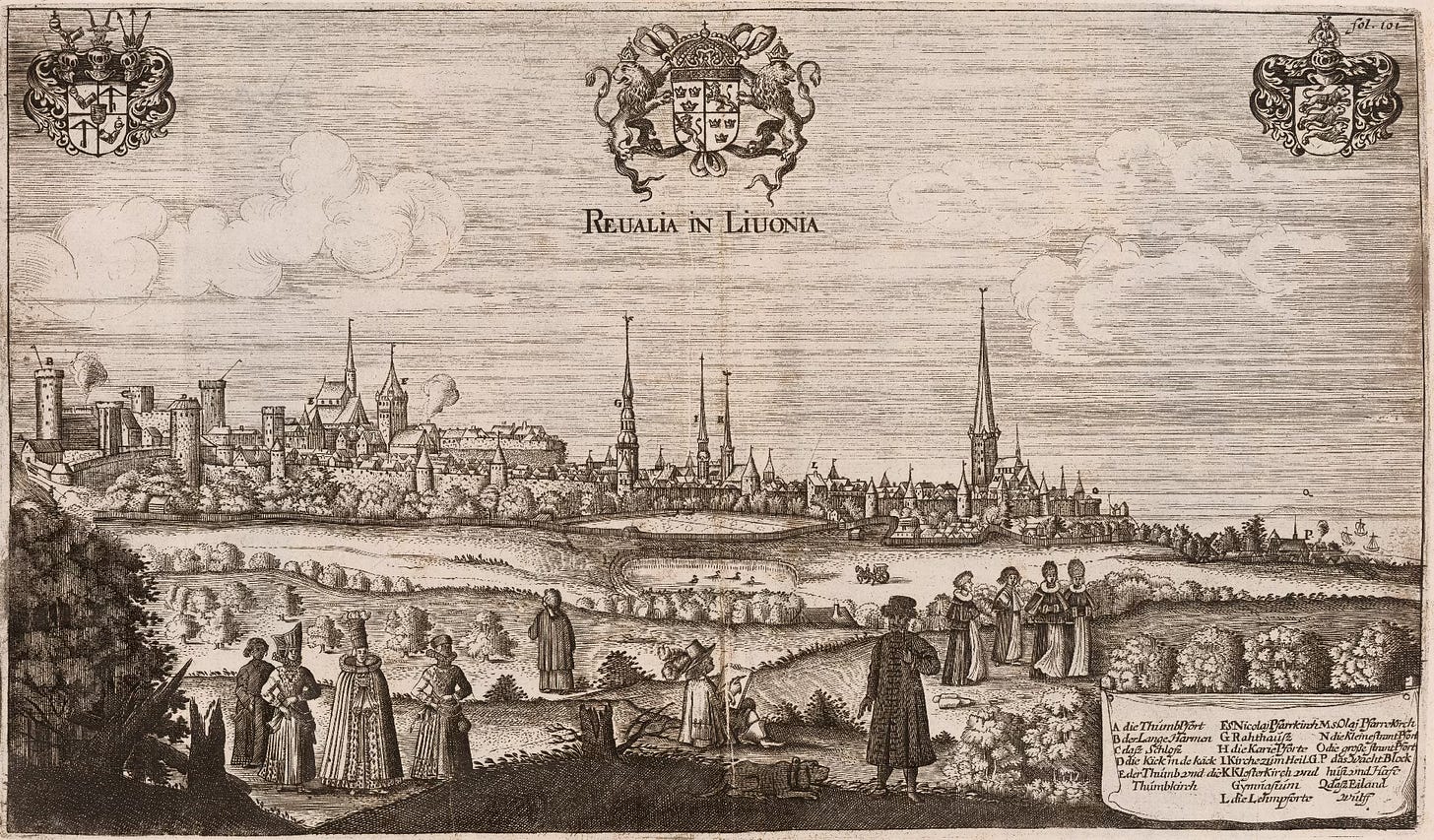
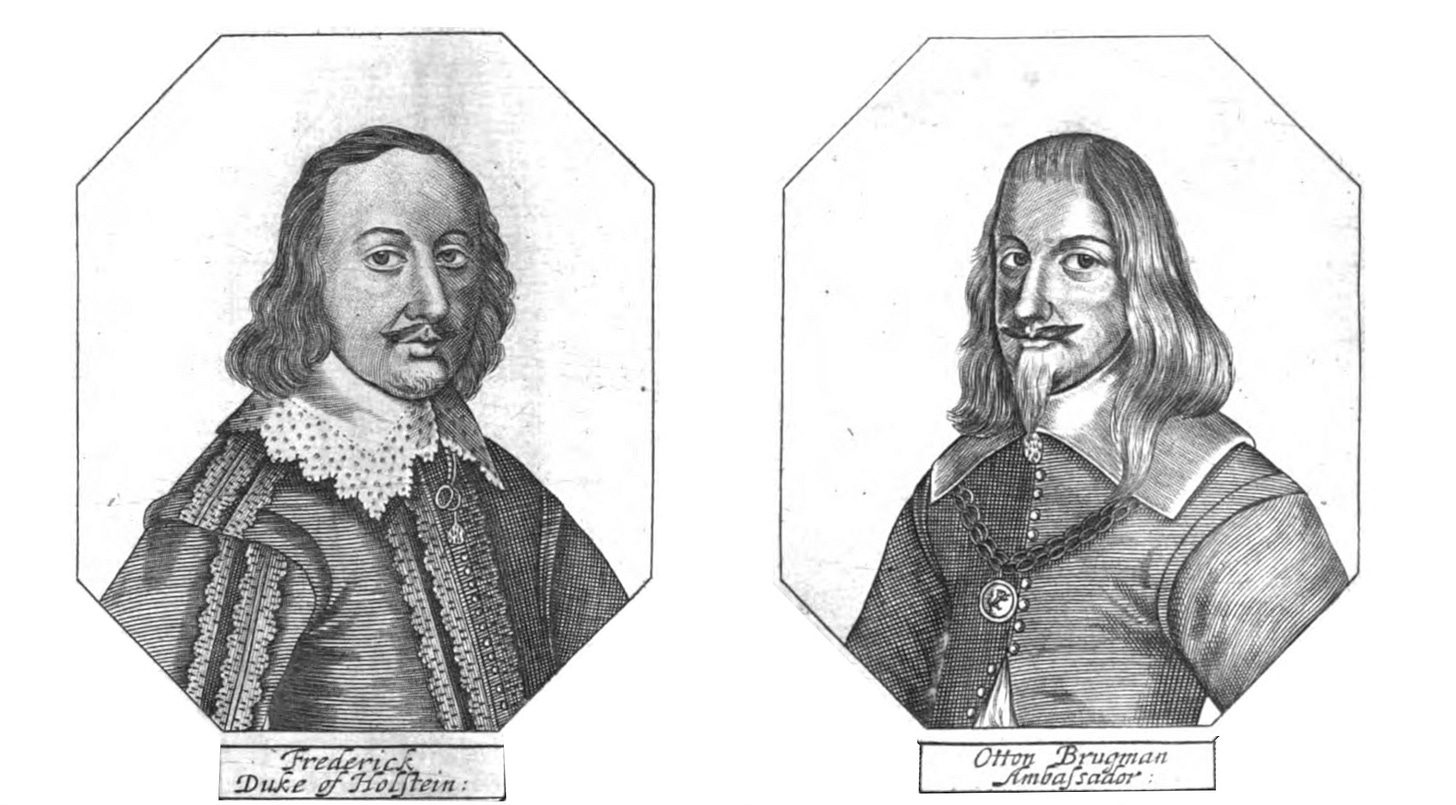

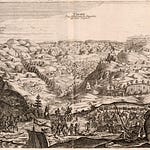
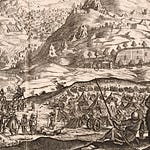
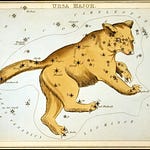


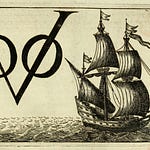
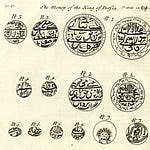
Share this post